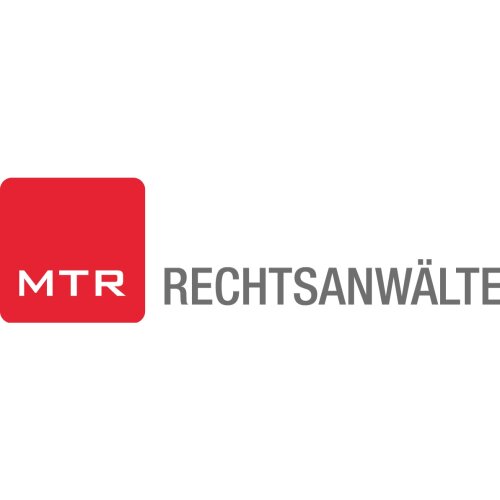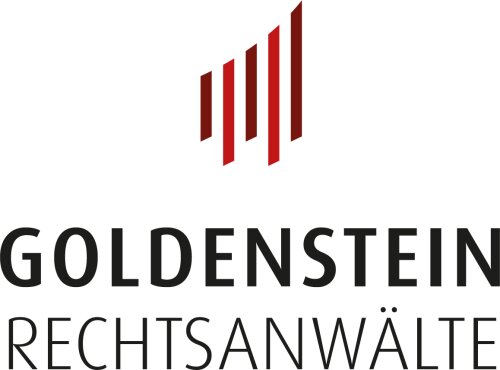Best Tax Increment Financing Lawyers in Berlin
Share your needs with us, get contacted by law firms.
Free. Takes 2 min.
List of the best lawyers in Berlin, Germany
About Tax Increment Financing Law in Berlin, Germany
Tax Increment Financing (TIF) in Berlin, Germany, is a financial tool used by municipalities to stimulate urban development and economic growth in specific areas. The concept allows the government to use future tax revenue increases, anticipated to result from the development projects, to finance current improvements. Though the application of TIF is less common in Germany compared to countries like the United States, similar funding mechanisms exist under urban redevelopment laws. In Berlin, this may include financing for infrastructure improvements, public facilities, and other projects aimed at revitalizing underdeveloped or economically stagnant areas.
Why You May Need a Lawyer
Involvement in Tax Increment Financing projects can be complex, and there are numerous scenarios where legal assistance might be necessary:
- Project Development: When planning a large-scale development project that may qualify for TIF, a lawyer can help navigate the regulatory and compliance landscape.
- Negotiations: Lawyers can be instrumental in negotiating terms with government bodies and other stakeholders to ensure favorable conditions for your project.
- Understanding Legal Obligations: Legal advice may be needed to understand the obligations and responsibilities imposed on developers and property owners.
- Contractual Agreements: Drafting and reviewing contracts related to TIF projects to ensure they are legally sound and protect your interests.
- Litigation and Dispute Resolution: If issues arise, such as disputes over project execution or financing, a lawyer can represent your interests in court or through alternative dispute resolution methods.
Local Laws Overview
The legal framework governing TIF in Berlin is shaped by federal and state legislation concerning urban development, infrastructure financing, and municipal budget laws. Key aspects to consider include:
- Urban Redevelopment Law: Provides the basis for TIF-like arrangements, focusing on renewing urban areas and improving public infrastructure.
- Budgetary Regulations: Governs how municipalities can use expected future revenue increases to finance present projects.
- Land Development Policies: Addresses zoning regulations, land-use planning, and environmental assessments pivotal to TIF projects.
- Transparency and Accountability: Regulations ensuring transparency in financing arrangements and accountability in execution.
Frequently Asked Questions
What is Tax Increment Financing?
Tax Increment Financing is a public financing method that uses future increases in tax revenues from a designated area to fund current improvements in that area.
Is TIF widely used in Berlin?
While not as prevalent as in some countries, TIF or similar financing mechanisms are used selectively in Berlin for urban redevelopment purposes.
Who benefits from TIF projects?
TIF projects typically benefit developers, municipalities, and the community by stimulating economic growth, improving infrastructure, and enhancing property values.
How are TIF districts designated?
TIF districts are typically designated by local governments based on criteria such as economic need, potential for growth, and alignment with urban development plans.
Can TIF be used for any type of project?
No, TIF is generally used for projects that are expected to result in increased property values and tax revenues, such as infrastructure improvements and area revitalization.
What are the risks associated with TIF?
Risks can include financial over-reliance on projected tax increments that may not materialize, mismanagement of funds, and community opposition due to displacement effects.
Are there any transparency requirements for TIF projects?
Yes, there are regulations requiring public disclosure of financing plans, project goals, and progress to ensure transparency and accountability.
How can I apply for TIF for my project?
You would typically need to submit a proposal to the local government, demonstrating how your project meets the criteria for TIF support.
Can TIF lead to higher taxes for residents?
Generally, TIF does not lead to higher taxes; instead, it leverages projected increases in revenues from development to fund projects.
What is the role of a lawyer in a TIF project?
A lawyer can assist with regulatory compliance, project negotiation, drafting agreements, and resolving any legal disputes that arise.
Additional Resources
For more information and resources related to Tax Increment Financing, consider consulting the following:
- Berlin's Urban Development Authority: Offers guidance and support for projects seeking urban revitalization financing.
- Economic Development Agencies: Provide insights and assistance on funding and development opportunities.
- Legal Associations and Firms: Specialized in urban development law, can provide expert legal advice and assistance.
- Local Government Websites: Often have sections dedicated to urban planning and financing mechanisms.
Next Steps
If you're seeking legal assistance in the field of Tax Increment Financing, consider taking the following steps:
- Research and Prepare: Gather all relevant information about your project and TIF needs.
- Consult with Experts: Reach out to legal professionals with expertise in urban development and finance laws.
- Engage a Lawyer: Choose a lawyer or law firm that aligns with your specific needs and budget.
- Develop a Legal Strategy: Work with your lawyer to develop a comprehensive strategy that addresses all legal and regulatory aspects of your TIF project.
- Stay Informed: Keep abreast of ongoing regulatory changes and development opportunities in Berlin.
Lawzana helps you find the best lawyers and law firms in Berlin through a curated and pre-screened list of qualified legal professionals. Our platform offers rankings and detailed profiles of attorneys and law firms, allowing you to compare based on practice areas, including Tax Increment Financing, experience, and client feedback.
Each profile includes a description of the firm's areas of practice, client reviews, team members and partners, year of establishment, spoken languages, office locations, contact information, social media presence, and any published articles or resources. Most firms on our platform speak English and are experienced in both local and international legal matters.
Get a quote from top-rated law firms in Berlin, Germany — quickly, securely, and without unnecessary hassle.
Disclaimer:
The information provided on this page is for general informational purposes only and does not constitute legal advice. While we strive to ensure the accuracy and relevance of the content, legal information may change over time, and interpretations of the law can vary. You should always consult with a qualified legal professional for advice specific to your situation.
We disclaim all liability for actions taken or not taken based on the content of this page. If you believe any information is incorrect or outdated, please contact us, and we will review and update it where appropriate.















